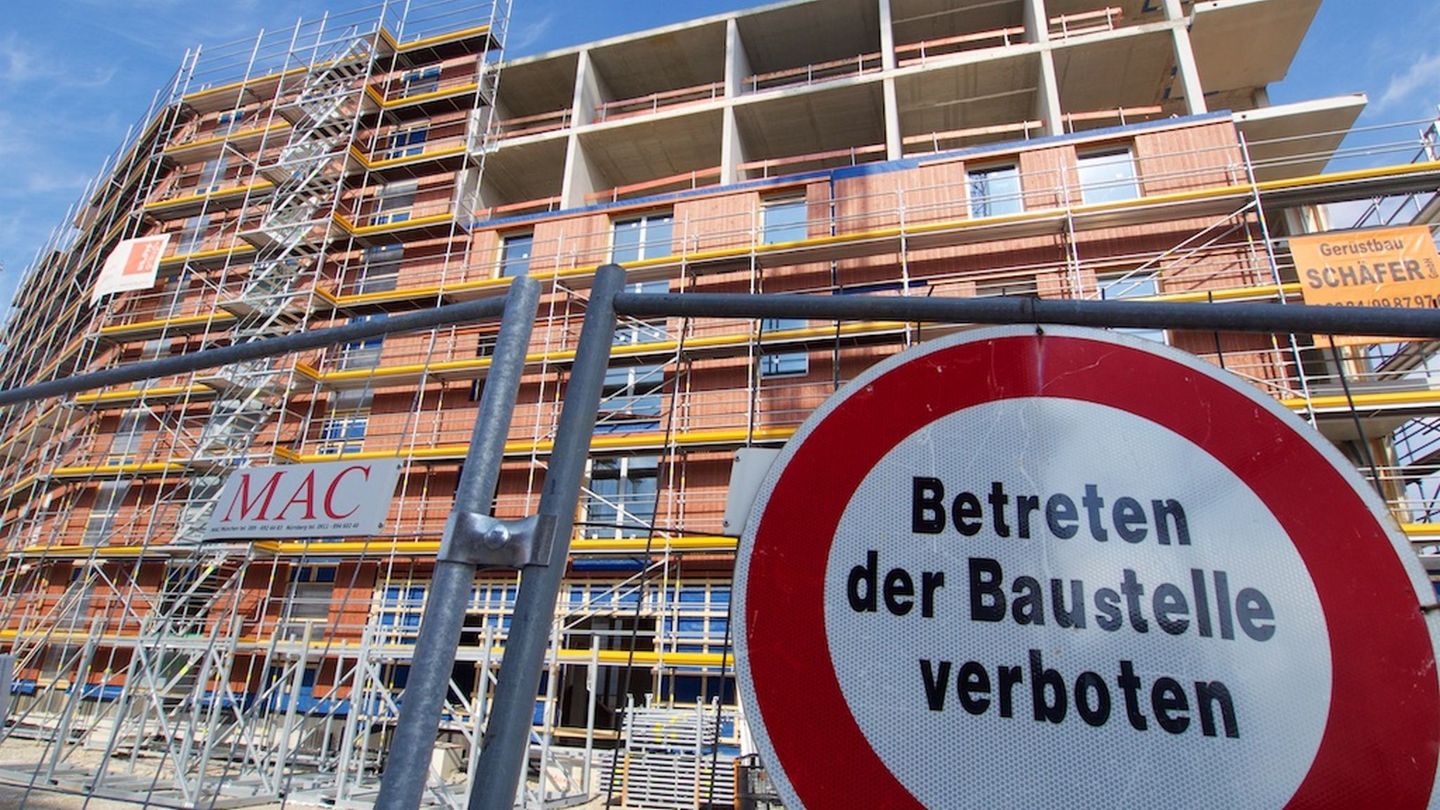Economy
IFO: Lack of order in housing construction reaches record value
Copy the current link
In Germany’s cities, rents rise despite the sunken property prices, and apartments are missing. However, the housing firms lack orders.
An end to the crisis of German housing construction, which has lasted for almost three years, is not in sight. In the monthly economic survey of the IFO Institute, 57 percent of the housing firms complained of missing orders, more than ever before. The expectations of companies for the next few months are still mostly pessimistic. “The crisis in housing construction seems to have become a normal condition,” said Klaus Wohlrabe, head of IFO surveys. So far, the interest rate of the European Central Bank would not have led to any relaxation of the situation.
Expectations for the next few months again more pessimistic
The downturn in the housing industry had started in spring 2022, reached its low point a year ago and has not improved significantly since then despite easier on and off. The ifo indicator for the business climate in housing was in the deep red area at minus 43.2 points, again a little worse than in the previous month (-41.8). The companies assessed their current situation in the balance a little less pessimistic than in December, but the business expectations for the coming months dropped again.
High demand for new apartments unchanged
The depression prevailing in several housing companies makes a significant contribution that the now chronically poor situation is not due to a lack of need for new apartments, but the framework conditions, in particular the high construction costs. “It is quite a challenge to remain optimistic,” commented Tim-Oliver Müller, general manager of the main association of the German construction industry. “We don’t have apartment shortage everywhere in Germany, we have housing shortage in the big cities.” In 2022, more than 75,000 people moved to Berlin, but only 15,000 apartments were built.
Fear: it goes down further down
“The discrepancy between a very strong demand for affordable living space and the low supply contains social explosives,” said Müller. The aim of the failed Berlin traffic light coalition was never achieved by 400,000 new apartments a year. Almost 300,000 new apartments were completed in 2023. According to a forecast of the IFO Institute and the European Building Conservation Network Euroconstruct from August 2024, this number could crash to under 200,000 newly completed apartments.
dpa
Source: Stern




